Jeff Garrison
Mayberry and Bluemont Churches
December 17, 2023
John 1:6-8, 19-28
After the lighting of the Advent candle:
Why did Jesus come? I hope you ponder this question during the season of Advent. In this season of darkness, we recall Jesus’ coming and long for his return.
Athanasius, one of the early Church theologians, in his classic book, On The Incarnation,[1] provides us with reasons God became a human being in the life of Jesus. These are all things of which only God can do.
First, Jesus forgives our sins. We can’t do that!
He completes the work of creation by helping to restore within us the image of God. Once that image is tainted, we can’t do anything about it. But God can.
And finally, Jesus reveals the heart of God the Father. God is God, we’re not. Without the revelation brought to us by Jesus, we would not know of God’s goodness. All these things are beyond our abilities. We must depend upon God who came to us in Jesus Christ.
Before the reading of the scripture:
John’s gospel is unique from the very beginning. The Prologue, the title given to the first 18 verses of John, provides a view of a dark world. And then comes light, the light of Christ. This section “oscillates” between a metaphorical introduction to Jesus and the preparation made by “an apocalyptic prophet, John.[2]
But John the Baptist’s presentation differs from what we find in the other gospels. Matthew, Mark, and Luke all refer to a John Brown type of character, who points his fingers at the people’s sins, says harsh things, wears weird clothing, and lives on a strange diet.[3]We don’t see this side of John the Baptist in John’s gospel. In some ways, the Baptizer in John’s gospel is boring. But there’s a reason for this. I hope you think about this, for it applies to how follow Jesus.
Preaching about John the Baptist from John the gospel is difficult. I’ll do my best to differentiate between the two Johns, for they are different people. Sometimes, to keep them straight, I’ll refer to John the Baptist as the Baptizer and John the author as the gospel writer.
Read John 1:6-8, 19-28
When you go out for a night to a concert or comedy club, you are there to see the main act. That’s the draw. But before the main act come on stage, generally another band or comedian warms up the crowd. The only people who are there to see the warmup act are parents and friends of the performers.
These the warmup bands are usually up and coming musicians or comedians. It’s how most start out in the entertainment business. The warmup acts begin, then comes the feature act, the one we pay to see. The warmup act is a hard position because you are trying to make a name for yourself. But it would be in bad form to outshine the main act.
In a way, John the Baptist role warms up the setting for Jesus. But John knew his position. He wasn’t trying to make a name for himself. Instead, he knew his goal was to point to Jesus, the Messiah, who we get the sense is already on the scene, hiding in the crowds.
John and Jesus are contemporaries. From Luke’s gospel, we learn John was only a little older than his cousin, Jesus.[4] John just starts his career earlier. His role was to prepare people for Jesus’ arrival.
In the synoptic gospels (Matthew, Mark, and Luke), we learn more about how John went about preparing people. He called them to repentance. He was harsh on those who abused their power, calling the people a brood of vipers. Shaken, they asked what they should do. John encouraged them to bear fruit worthy of repentance such as giving to those in need and being honest in their dealings.[5]
Furthermore, John the Baptist attacked those in power. The Pharisees and Sadducees received his wrath.[6] He also attacked Herod, the ruler, for his evil which included luring away his brother’s wife. The later accusation landed John in prison and eventually to his execution, where his head was displayed on a platter.[7]
And of course, John was known for his eccentric dress (camel hair and leather) and unusual diet (bugs and honey).[8]
But in today’s reading, John the gospel writer doesn’t provide such exciting details. We ponder the reason why John presents a more domestic Baptizer. I think John left out those details because he wants us to focus, as did the Baptizer, not on John’s work, but on the one coming. After all, the gospels are not about John the Baptist. It’s about Jesus. Yes, the Baptizer plays an important role in announcing Jesus’ coming. However, ultimately, it’s not a story about him but about the one to come.
This is also true in our lives. We are not to draw people to ourselves. Such is the behavior of a cult, not the church. It might be the great sin committed by preachers in that we try to get people to like us. But our role is to point others to Jesus, not to tiptoe around issues so that others will like us. At best, we’re servants of Jesus, but like John, we’re not even worthy of that role.
Later, in John’s gospel, after Jesus was well known, a group of Greeks in Jerusalem (perhaps they were tourists who heard about Jesus) approach Philip, one of the disciples. “Sir,” they say, “we wish to see Jesus.”[9] Again, this is the purpose of John’s gospel, to show Jesus.
That verse, “We wish to see Jesus,” is often found in pulpits such as the one from which I preached on Skidaway Island. Those in the congregation couldn’t see it, but if you stood in the pulpit, you couldn’t miss it. The sign reminded the one preaching that our purpose is to introduce and help people see Jesus.
By leaving off the interesting tidbits of John the Baptist’s life, John the gospel writer tells us just enough about him to keep the focus on Jesus.
So, what do we learn about John the Baptist in this text? We’re told that John was sent from God to point the way to Jesus. Then, John himself denies that he is the Messiah, when confronted by the Jewish leaders sent to check him out. Instead, he is the one fulfilling the prophecy of Isaiah, the one preparing the way of the Lord.
And finally, as John the Baptist deemphasized himself and acknowledged he’s not even worthy of being a slave to Jesus. At this time, in royal households and the very rich (think about the one percenters of the first century), slaves who did the most menial tasks for their masters. This included tying and untying sandal straps. But John says he’s not even worthy of such a task.
Of course, none of us are worthy. But because of Jesus’ grace, we are invited into his family and called to do his work in the world.
The baptizer introduced to us by John is humble. He has one task, to prepare the way for Jesus’ coming. He fulfills this task as he baptizes people in anticipation of Jesus.
This Advent Season, we should be like John the Baptist as he’s portrayed by John. We don’t have to eat locust or wear camel clothing (although I happen to like camel hair sports coats during the winter). But John’s camel clothing wasn’t a fashion statement.
Instead, like John, we should humbly let others know, by our examples and lifestyle, the important role Jesus plays in the hope we have for the future. This message needs to be heard in the dark world in which we live, a world where wars rage, the poor starve, and those without medical care suffer. Do what you can to help others as you praise Jesus’ name and so prepare the world for his return.
This week, one of the easiest things to do is invite family and friends to our Christmas Eve service, where it’s all about Jesus, born in a manger. And yet, this humble Jesus, also rules the universe.
To Jesus Christ, who loves us
and freed us from our sins by his blood
and made us to be a kingdom,
priests of his God and Father,
to him be glory and dominion forever.[10] Amen.
[1] Saint Athanasius (c.297-337, AD), On the Incarnation (Public domain texted formatted and printed by Cliff Lee, 2007).
[2] Gerald Sloyan, John, Interpretation: A Bible Commentary for Teaching and Preaching (Atlanta: John Knox Press, 1988), 13.
[3] See Matthew 3:1-12, Mark 1:1-8, and Luke 3:1-18.
[4] Upon learning of her pregnancy, Mary goes to Elizabeth’s home. Elizabeth six months pregnant with John. See Luke 1:36-45.
[5] Luke 3:7-14
[6] Matthew 3:7.
[7] Luke 3:19. See also Matthew 14:1-12 and Mark 6:14-42.
[8] Matthew 3:4-6 and Mark 1:6.
[9] John 12:20-21. See also https://www.youtube.com/watch?v=OCf3lvUpWL4
[10]From Revelation 1:5-6


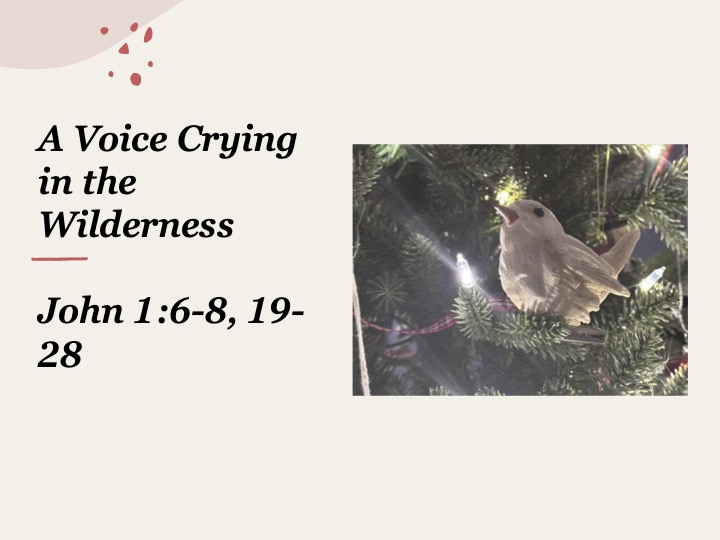
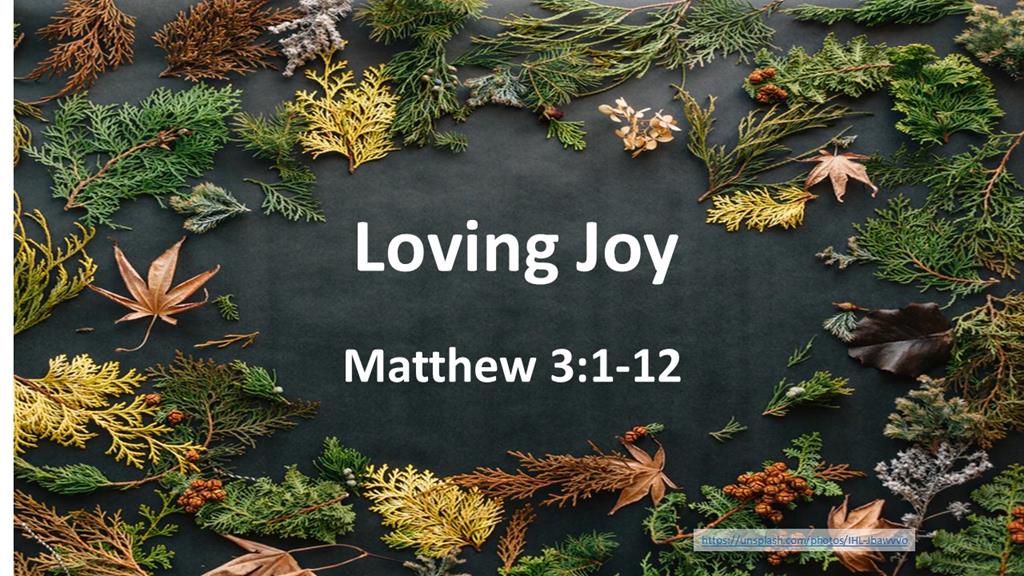
 There were two preachers who, on their day off, enjoyed fishing. They were at a river next to a highway. Before sitting on the bank, where they’d watch their corks in the hope they’d be the tug of a fish on the line, they posted a sign. It read, “The end is near! Turn yourself around before it’s too late.”
There were two preachers who, on their day off, enjoyed fishing. They were at a river next to a highway. Before sitting on the bank, where they’d watch their corks in the hope they’d be the tug of a fish on the line, they posted a sign. It read, “The end is near! Turn yourself around before it’s too late.”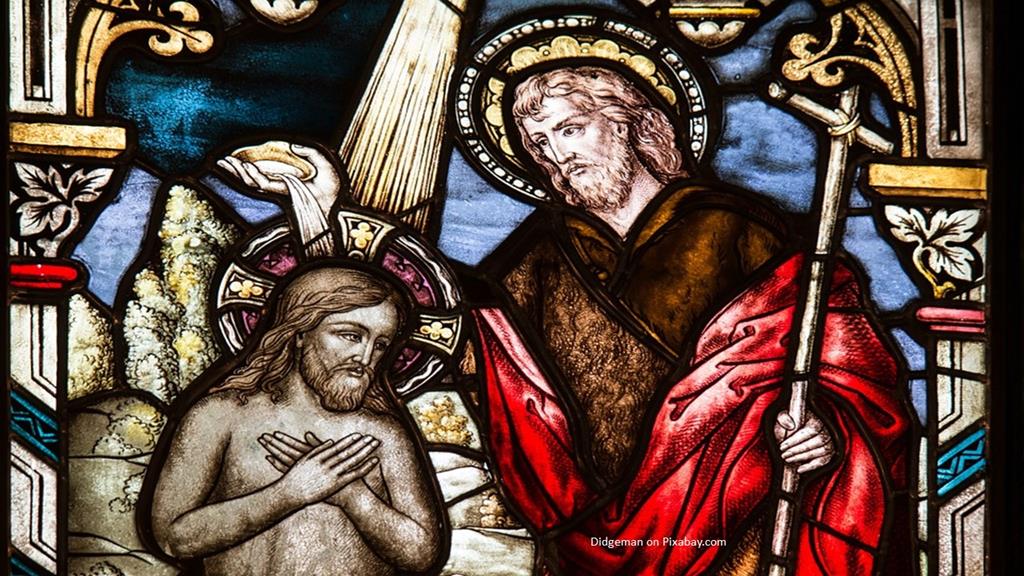 I wonder about John’s message. It’s so harsh, maybe he should have toned down his words. Repeatedly, he talks of fire, and not the warming flames of a campfire, but the ominous fire like those recently experienced in California and Australia. “You brood of vipers,” he calls the religious leaders of the day. That doesn’t sound very loving, does it? Jesus would never say that, would he? Actually, he does; twice in Matthew’s gospel.
I wonder about John’s message. It’s so harsh, maybe he should have toned down his words. Repeatedly, he talks of fire, and not the warming flames of a campfire, but the ominous fire like those recently experienced in California and Australia. “You brood of vipers,” he calls the religious leaders of the day. That doesn’t sound very loving, does it? Jesus would never say that, would he? Actually, he does; twice in Matthew’s gospel.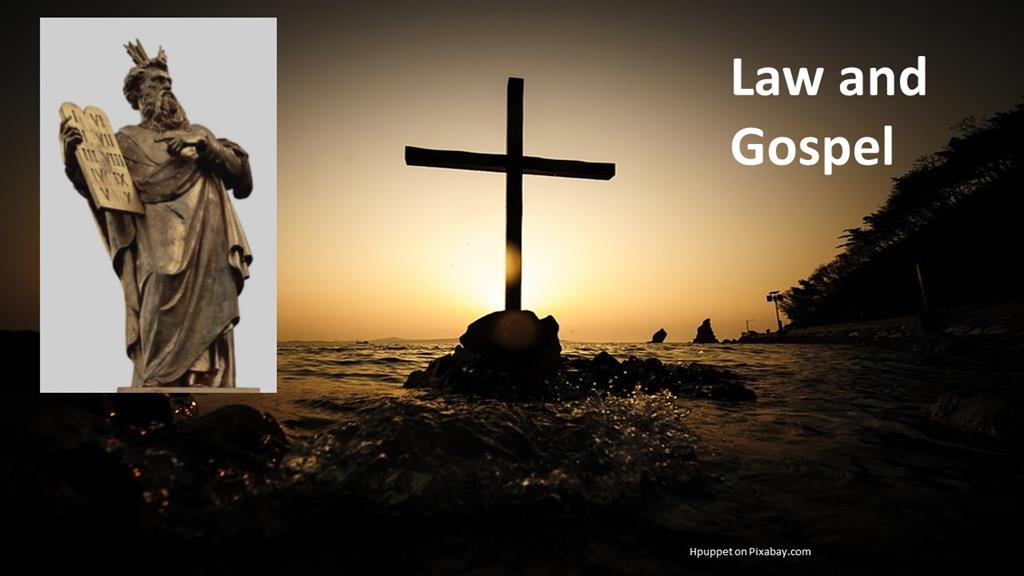 Law and gospel, they go together. To understand the story of scripture, we can’t just push off the “law” parts of the Bible and only focus on the gospel. The gospel makes no sense without the law. The gospel is about how God saves us from our failures, our sin. Those who listened to and were moved by John’s preaching were left with no choice but to confess their sins in order to begin the process of repentance, a word that means to turn around or to start in a new direction. They had to leave sin behind as they joyfully accept what God was doing in their midst.
Law and gospel, they go together. To understand the story of scripture, we can’t just push off the “law” parts of the Bible and only focus on the gospel. The gospel makes no sense without the law. The gospel is about how God saves us from our failures, our sin. Those who listened to and were moved by John’s preaching were left with no choice but to confess their sins in order to begin the process of repentance, a word that means to turn around or to start in a new direction. They had to leave sin behind as they joyfully accept what God was doing in their midst.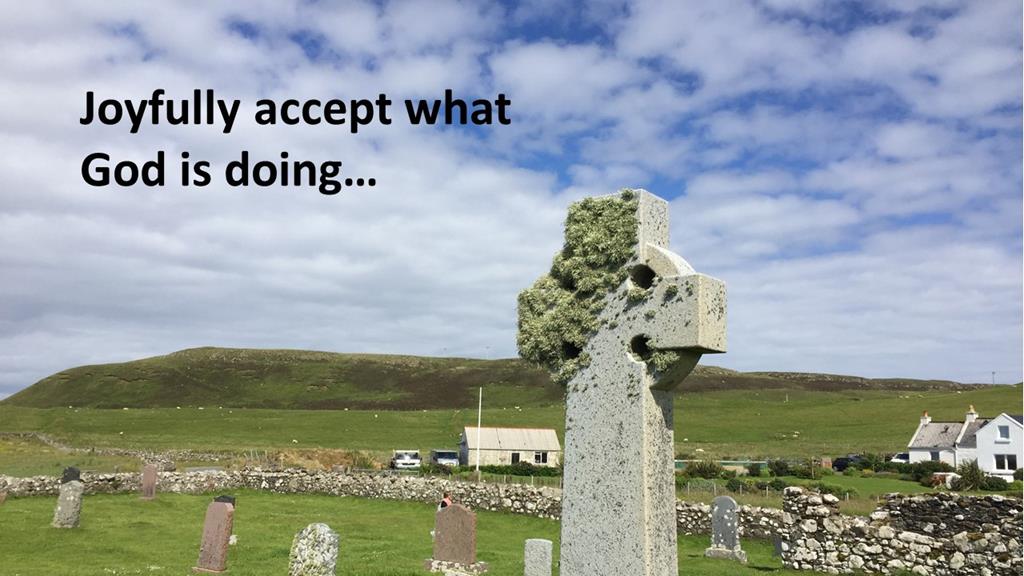 But it all comes back to this. God is doing something new. With John the Baptist, God was paving the way for his Son to come on the scene and to teach people a new way to live and to be human. In order to prepare for something new, people must admit their own sinfulness and to realize that they long for something better. Of course, if we don’t think we need to be better, there’s a warning here. Judgment that comes from transgressing the law is a reality. So, do we ignore our sinfulness and die to the law? Or do we accept and confess our sinfulness and embrace the grace that Jesus’ offers? Those are our choices.
But it all comes back to this. God is doing something new. With John the Baptist, God was paving the way for his Son to come on the scene and to teach people a new way to live and to be human. In order to prepare for something new, people must admit their own sinfulness and to realize that they long for something better. Of course, if we don’t think we need to be better, there’s a warning here. Judgment that comes from transgressing the law is a reality. So, do we ignore our sinfulness and die to the law? Or do we accept and confess our sinfulness and embrace the grace that Jesus’ offers? Those are our choices.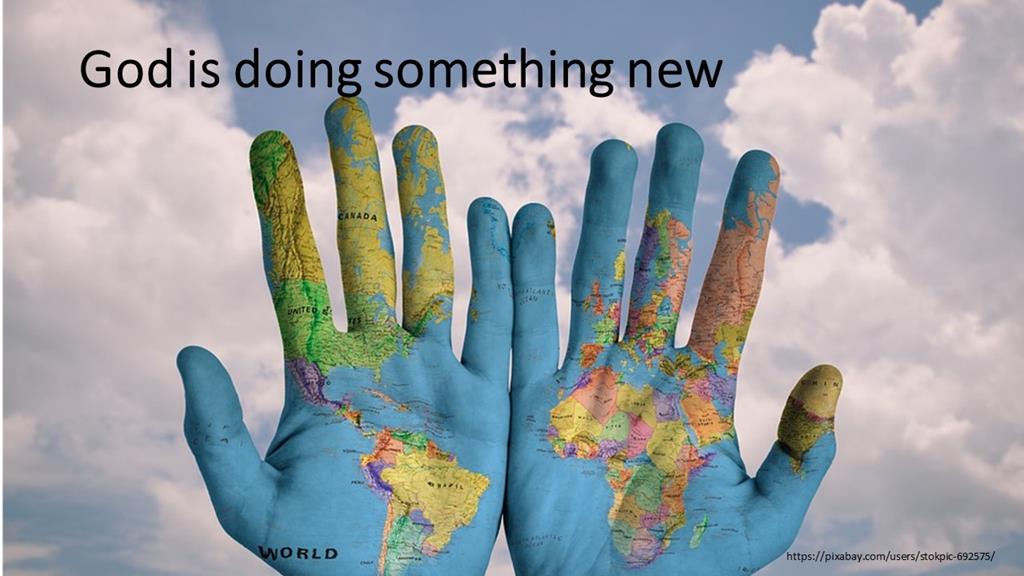 Advent is the time for us to prepare for the loving tenderness shown by Jesus. If God is redeeming this world, if God is promising a new heaven and a new earth, then we should want to be ready to receive this gift. But to receive the gift, we must leave the past behind. We have to be willing to examine deep within our souls and to offer up all that’s not godly so that we might be both cleansed of our sin and have the room to accept Christ into our hearts. We must be willing to allow ourselves to be transformed into something new and better. For Advent is a time not only to remember that Christ came, but that he will come again, and we must be ready.
Advent is the time for us to prepare for the loving tenderness shown by Jesus. If God is redeeming this world, if God is promising a new heaven and a new earth, then we should want to be ready to receive this gift. But to receive the gift, we must leave the past behind. We have to be willing to examine deep within our souls and to offer up all that’s not godly so that we might be both cleansed of our sin and have the room to accept Christ into our hearts. We must be willing to allow ourselves to be transformed into something new and better. For Advent is a time not only to remember that Christ came, but that he will come again, and we must be ready. We must not just prepare ourselves; we should prepare the church, which is, in the final events of history, to be the bride of Christ.
We must not just prepare ourselves; we should prepare the church, which is, in the final events of history, to be the bride of Christ. Is there loving joy in this passage that will lead to us “repeat the sounding joy”? Yes, there is, but we must get beyond the call to prepare, which John focuses on, and realize that God is doing a new thing. We trust in a God of resurrection. Even if the world destroys itself, God won’t let that be the final word. God wants to remake us. John’s role is to prepare us. Our role is to respond to John’s call to repentance so we might be open to what God is doing in our lives and in our fellowship. Confession and repentance may not in favor in today’s secular world, but in the church, it’s where we begin. All of us need to take a deep look at ourselves and then turn to God and fall on our knees… Amen.
Is there loving joy in this passage that will lead to us “repeat the sounding joy”? Yes, there is, but we must get beyond the call to prepare, which John focuses on, and realize that God is doing a new thing. We trust in a God of resurrection. Even if the world destroys itself, God won’t let that be the final word. God wants to remake us. John’s role is to prepare us. Our role is to respond to John’s call to repentance so we might be open to what God is doing in our lives and in our fellowship. Confession and repentance may not in favor in today’s secular world, but in the church, it’s where we begin. All of us need to take a deep look at ourselves and then turn to God and fall on our knees… Amen.